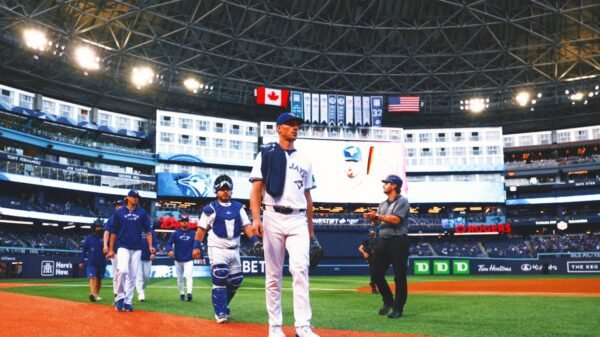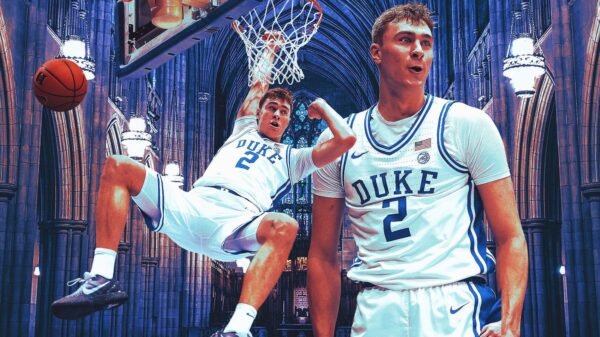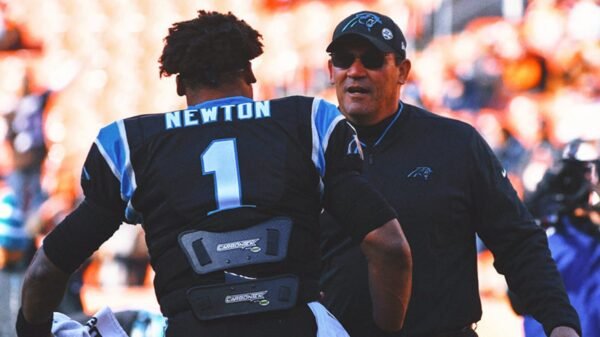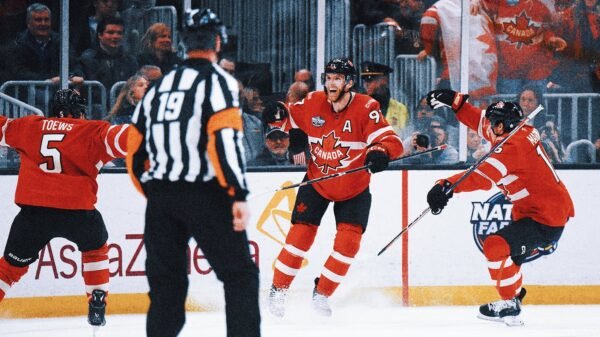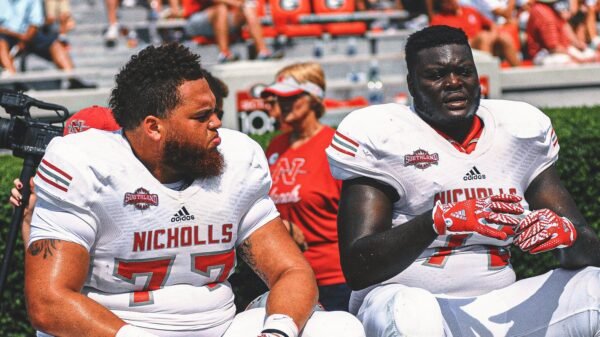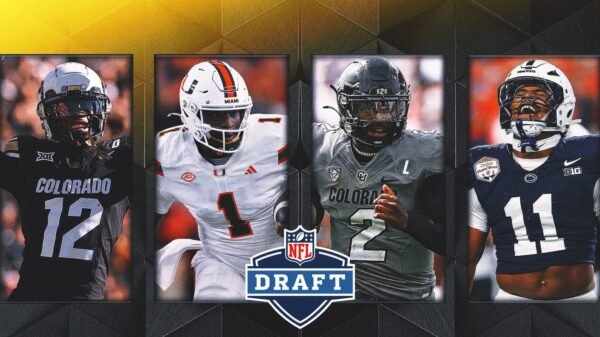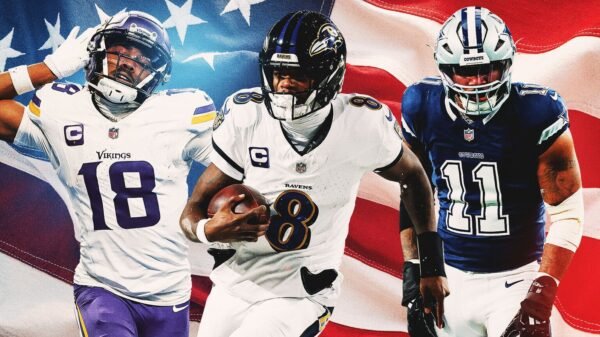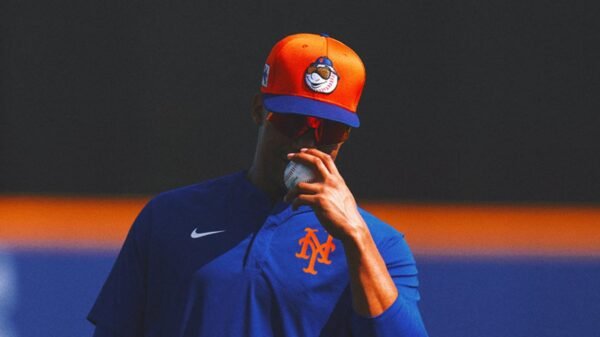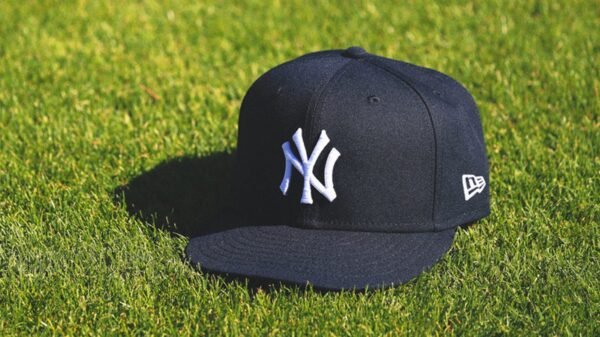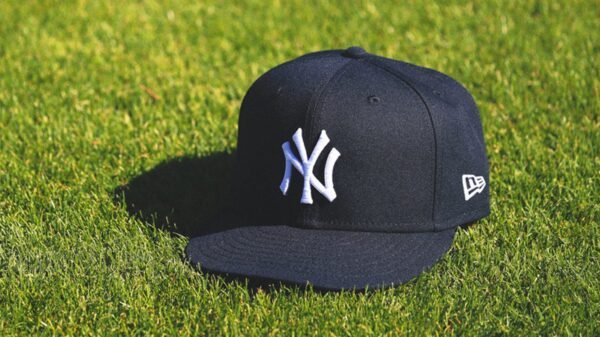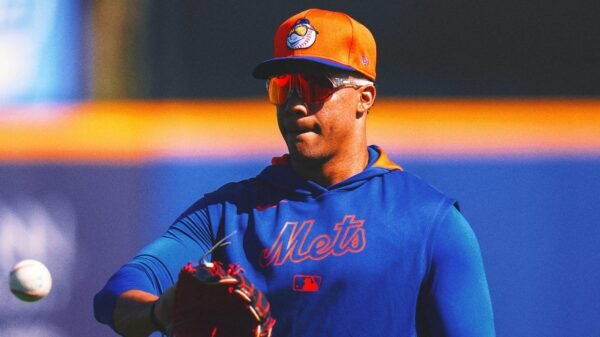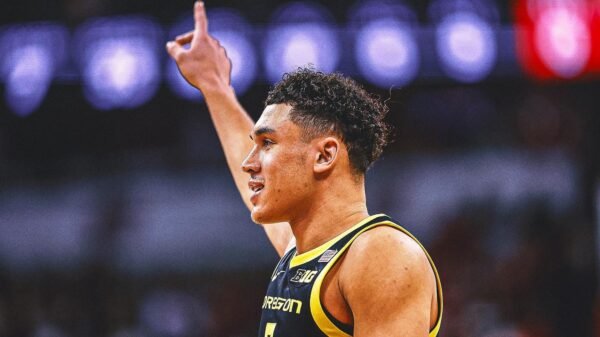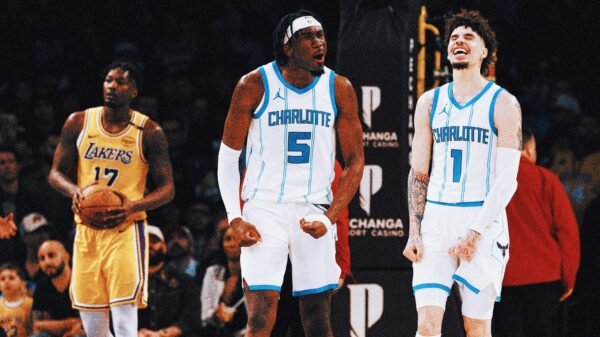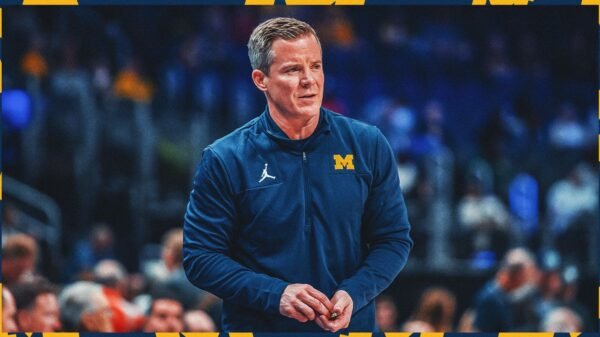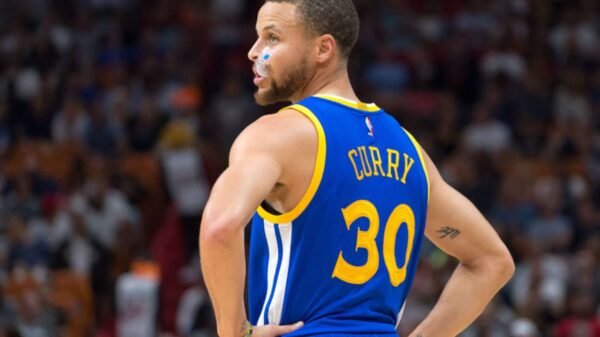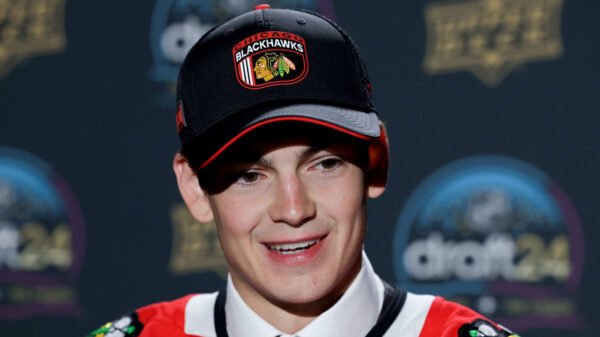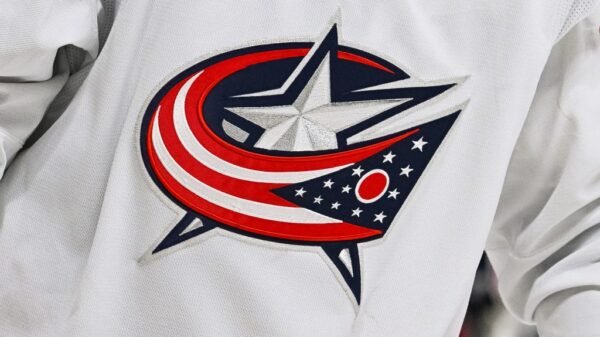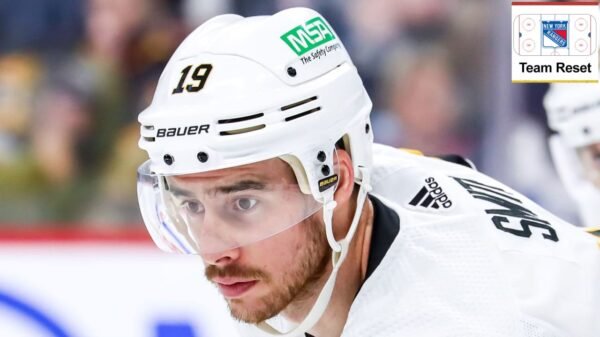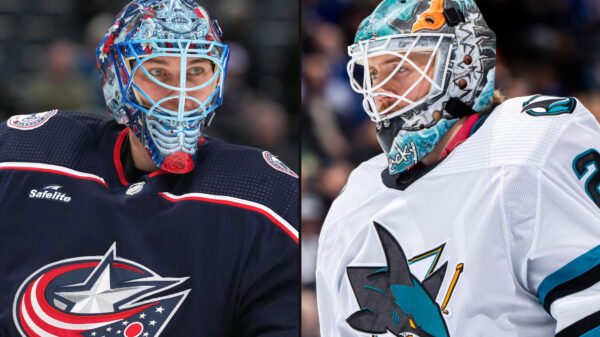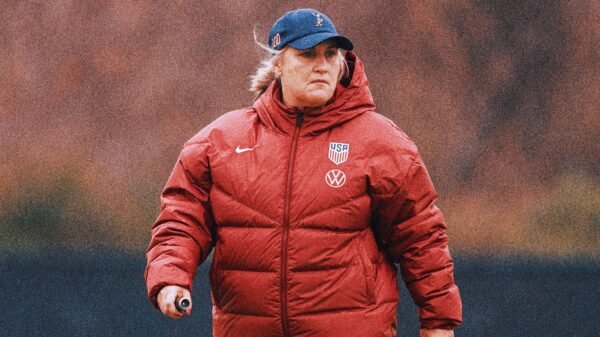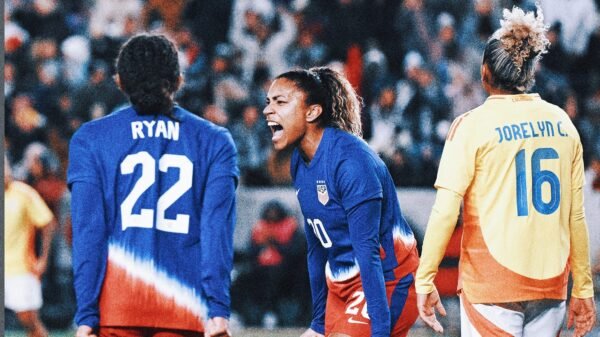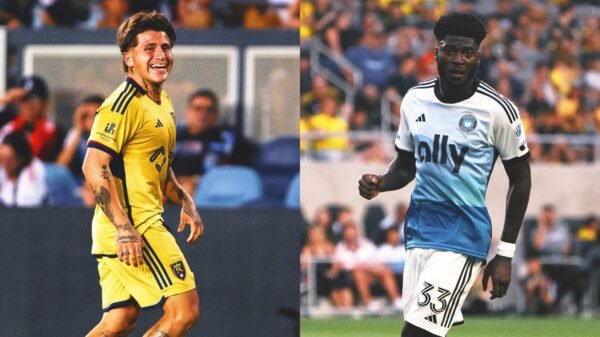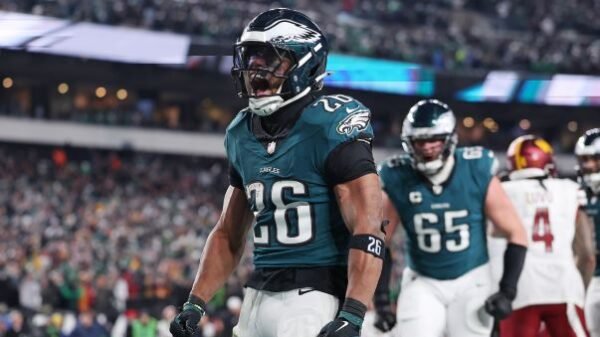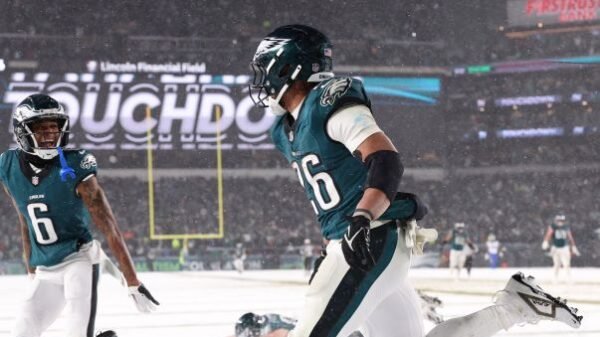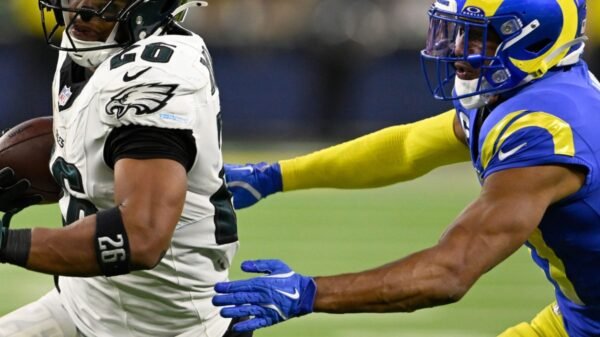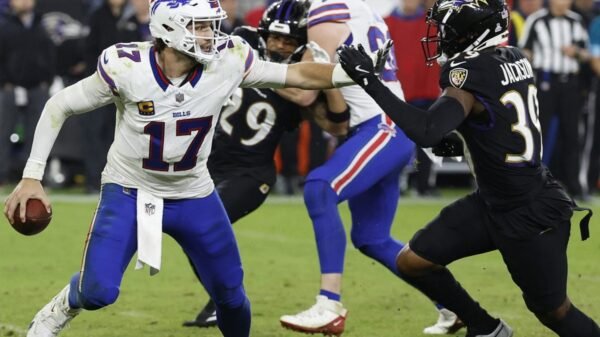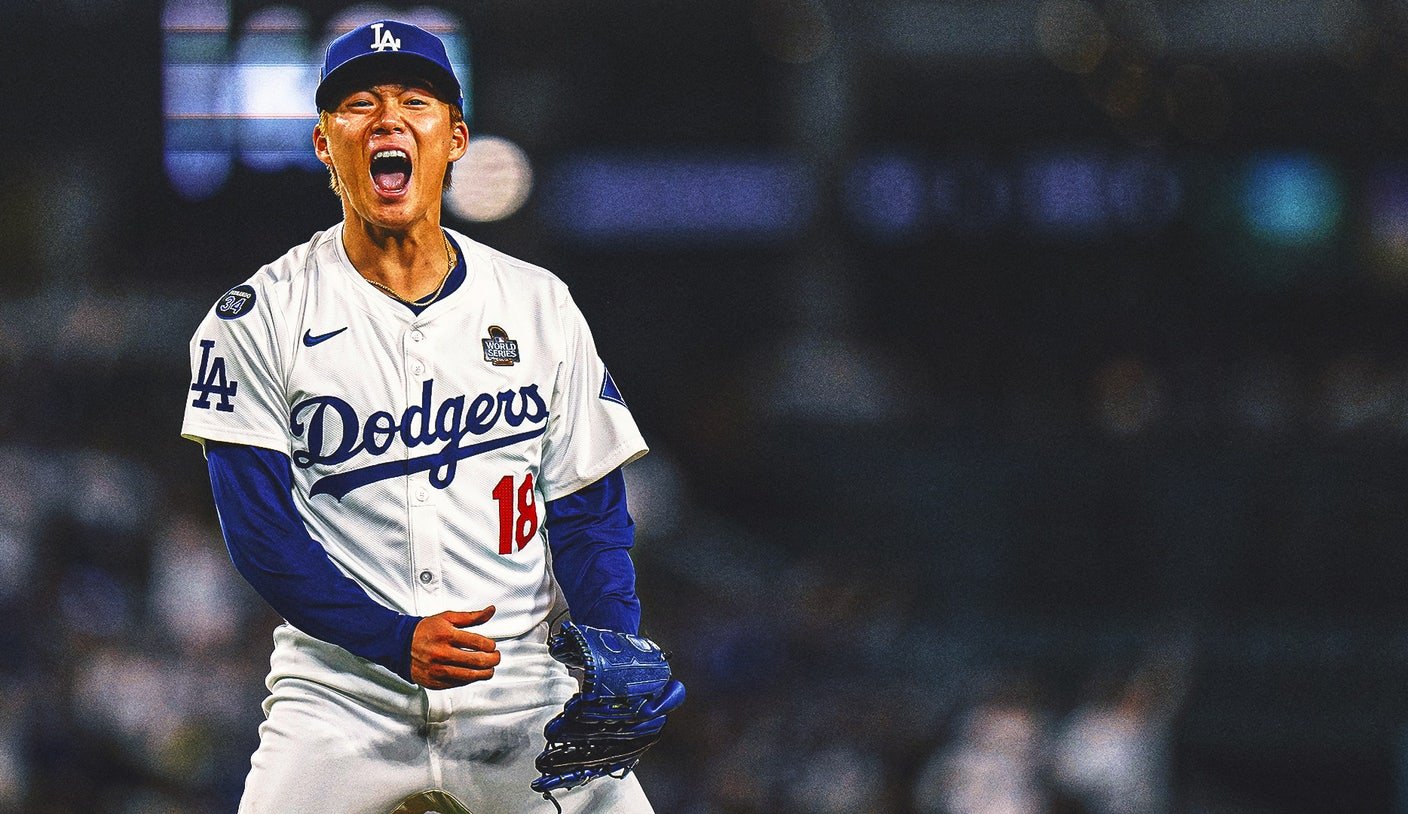Dodgers’ Yoshinobu Yamamoto delivers on his $325 million promise with a stunning World Series performance. When he joined the Los Angeles Dodgers last December, he made a bold statement: he would stop idolizing his heroes and instead aim to be someone others aspire to emulate.
Fast forward ten months, and manager Dave Roberts walked out of the dugout in the seventh inning at Dodger Stadium to take the ball from the 26-year-old. Before leaving the mound, he shook Yamamoto’s hand and embraced him. In his inaugural World Series appearance, amidst his first big-league postseason, Yamamoto faced a formidable Yankees lineup that included the likely American League MVP and a high-profile free-agent star. He provided the kind of performance that the Dodgers envisioned when they made him the highest-paid pitcher in baseball last offseason.
“From pitch one, you knew he had his good stuff all night,” said Freddie Freeman, the hero of the previous night, after the Dodgers secured a 4-2 victory in Game 2. “Just an awesome first start in a World Series, everything we needed out of him. He delivered.”
Yamamoto had previously silenced the Yankees in New York, throwing seven scoreless innings in a performance that showcased his ability to excel under pressure. Nearly five months later, after spending three of those months recovering from a shoulder injury, he rose to the occasion once again at home, putting the Dodgers two wins away from the championship by dismantling a Yankees team that once considered him a target.
A roaring standing ovation from 52,725 fans, many chanting “Yo-shi,” greeted Yamamoto as he exited the game after allowing just one run in 6.1 innings—his longest start since that remarkable outing in the Bronx.
“I’m really proud of him,” remarked Mookie Betts.
Unlike his previous start against the Yankees, Yamamoto faced a new challenge: Juan Soto. Had it not been for Soto’s home run, he would have kept New York off the scoreboard once more.
The only blemish on his record came in the third inning when Soto connected on an inside fastball for a solo home run. That marked the only hit Yamamoto allowed, as he retired the next 11 batters, including striking out Aaron Judge for the second time, before Roberts turned to the bullpen.
“Coming over to this league can be a big-time culture shock,” said reliever Daniel Hudson. “This country, this league, is completely different from what he grew up with. We all expected some growing pains. But he’s got elite stuff and a good head on his shoulders. We were excited to have him back at the end of the year.”

Last year in Japan, Yamamoto earned a reputation for bouncing back, especially on the biggest stages. After allowing seven runs in Game 1 of the Japan Series, he rebounded with a series-record 14-strikeout complete game.
In his first big-league postseason, he faced similar challenges. He struggled through three innings against San Diego in Game 1 of the National League Division Series but then delivered five scoreless innings in the decisive Game 5, helping the Dodgers overcome their first-round hurdles. Gavin Lux remarked that Yamamoto had “a little Walker Buehler in him,” referring to his knack for performing in high-pressure situations.
In this pivotal World Series performance, Yamamoto showed no signs of needing to adjust. He was sharp throughout, just as Dodgers vice president of player personnel Galen Carr had predicted after scouting him multiple times in Japan.
“It’s hard to put yourself in their shoes when they’re changing leagues, countries, and cultures,” Carr said. “Everything is different—the ball, the mound, the schedule, the travel.”
Yamamoto views his experience in the Japan Series as distinct from his first major-league postseason, particularly since this is his first season in a new league. He and his supporters believed that, after an adjustment period, he would excel.
After allowing five runs in three innings in his playoff debut, he bounced back to hold the Padres scoreless in his next outing. He struck out eight in his NLCS start against the Mets and then delivered an impressive World Series performance against a powerful Yankees lineup.
In his second showdown against the Yankees, Yamamoto thrived without needing to adjust. He relied on his four-seamer, which he initially commanded erratically but found his rhythm as the game progressed, and a curveball that earned six called strikes.
A home run from NLCS MVP Tommy Edman gave Yamamoto an early lead. When Soto’s homer tied the game, the depth of the Dodgers’ lineup became evident. Teoscar Hernández quickly responded with a two-run blast, followed by a solo shot from Freeman.
Freeman’s performances have evoked memories of past Dodgers World Series triumphs. His Game 1 home run mirrored Kirk Gibson’s legendary pinch-hit homer in 1988. On Saturday, Freeman’s solo shot recalled the Dodgers’ 1981 championship against the Yankees, which was the last time they hit back-to-back homers in a World Series game.
Freeman had a restless night before Game 2, tossing and turning due to his kids being awake and the excitement of making World Series history with the first walk-off grand slam. However, he quickly regained his energy, receiving the first standing ovation of the night.
“Walking up to the plate for my first at-bat today, it was hard not to smile inside,” Freeman expressed.
The second ovation was for Yamamoto, who received a warm send-off after his final pitch. Roberts approached the mound at a relaxed pace.
“Yamamoto,” Freeman concluded, “was absolutely incredible.”

